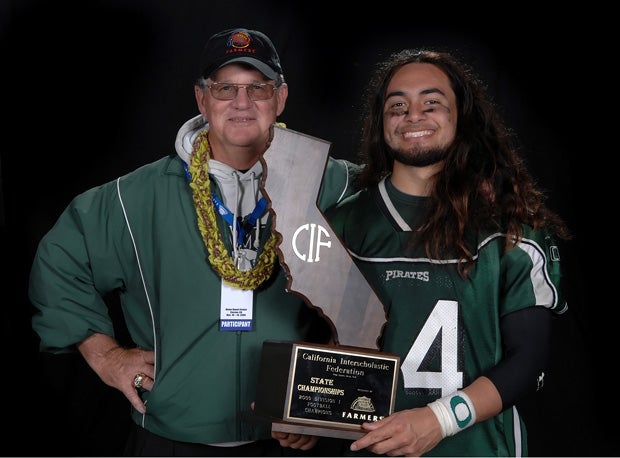Video: De La Salle, CA - Interview - Coach Bob Ladouceur
See a high school coaching legend being interviewed after a game.I call them Disneyland. I love going to clinics, always have.
I'll never forget the first clinic I went to. John Carroll from
Oceanside (Calif.) is a legend in this state. He took his team to 21 consecutive CIF San Diego semifinal appearances, (he won 13 of them), and won two state titles in his later years, when California adopted its bowl system.
I stepped into the elevator to go to my room, and there was THE coach Carroll. Of course I didn't talk to him, I was a shy, young coach who had no idea what to say.
Boy I wish I had those few minutes back!
I call clinics "Disneyland for coaches" because that is how I see them. It's a really great time for coaches. Some of the best times I had with my staffs as a head coach were piling into a few cars and spending the weekend together at a clinic. Those weekends helped to shape the coming season, in many ways.
1. Shake some handsI regret that I didn't introduce myself to coach Carroll on that elevator. And that I didn't shake coach Bob Ladouceur's hand later that day. The legendary De La Salle football coach was sitting on a bench, looking at the clinic schedule, all by himself as I headed out to my car. But what in the world would this 23-year-old coach say to the Legend?!
Just introduce yourself to other coaches. I recently attended the American Football Coaches Association Convention in Nashville. Any time I had the opportunity to just say hello to a coach, I did. I met some really great men there. There are ample times to say hello to another coach. These can be great networking opportunities for you as a professional. You never know what kind of conversation you will have. Perhaps it will lead to a job that you really want later on down the road. Collect business cards and phone numbers as you see fit.
2. Take good notes
John Carroll forged an illustrious career at Oceanside.
Photo by Heston Quan
There are two types of coaches at clinics. Those who take notes, and those who do not. There really is no in-between here. You are either taking notes to refer back to later, or you are not. Even if you think that the talk you are in isn't helpful, take notes! Don't just sit there like a bump on a log. You never know when those notes will come in handy. Sure enough, you're going to remember some key points of the talk, and refer back to "that one clinic with the guy who taught about offensive linemen, and that one drill he did." You thought that you had it memorized, but now it is August, and that was a lifetime ago. Take notes.
3. Look for a few gold nuggetsOne of the first head coaches I worked for told me at my first clinic "just look for 3-4 things that we can talk about on Monday. Don't get overwhelmed." He was right. I took probably 70 pages of notes at that first clinic. So many great ideas, so many great plays, so many great improvements that we could make.
But as time goes on, and you become who you are as a coach, and as you solidify your X's and O's, the clinics can become more of a place to just network, and not learn. Many coaches get arrogant, and "know everything." But I'm convinced that we can never quit learning. There will always be something that you can learn, that you can take away to your program. Look for those gold nuggets to take back home. They are there.
4. Be presentOne of my favorite coaches, coach Mike Gundy from Oklahoma State, was speaking at the AFCA Convention this year. I had to leave early to catch my flight home. I was blown away at how many coaches (most of them on the younger end) were outside in the hallways on their phones. Not talking on their phones, but just on their phones. Maybe texting, or answering an important email, I don't know. But there were hundreds of coaches missing out on a dynamite talk by Gundy. What was so important on their phone that couldn't wait? I suspect that many were just out there in the hallways on their phones because they have a hard time just being present in the here and now. Check in, and be present at the clinic.
Chris Fore is a veteran Head Football Coach and Athletic Director from Southern California. He consults coaches and programs nationwide through his business Eight Laces Consulting.
